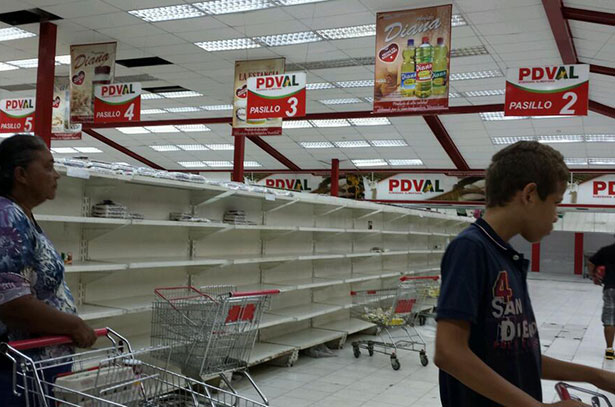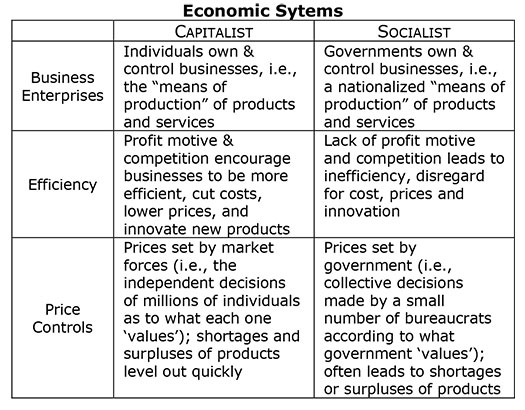
Empty shelves in a Venezuelan store. Photo credit CIPE
by Lil Tuttle
Hollywood stars sing socialism's praises, and 36 percent of millennials have a favorable view of it. And why not? Socialism looks and sounds so stylish and new. Lots of free things. Economic equality among all the classes. Capitalism on social justice steroids.
Yet just as transvestites are the opposite of the clothes they wear, socialism is the opposite of the free-market capitalist economic robes it dresses in. Socialism has also been around a long time. Ask Russians and Germans, whose 20th century leaders took socialism all the way to fascism. Or ask Venezuelans, who today are living in the harsh reality of a fully exposed socialist economy.
"Venezuela's accelerating economic meltdown is rapidly turning the country into a full-fledged humanitarian crisis," writes Juan Carlos Hidalgo of CATO, adding "the pervasive shortages of food, medicine, electricity and other basic goods are making everyday life a nightmare."
Venezuela had great economic potential in the 20th century. One of the top 10 oil producers in the world, the nation's crude oil reserves surpassed that of Saudi Arabia. Trillions of petro dollars flowed into the nation … and into the hands of a corrupt socialist-leaning few. In 1976, Venezuela nationalized its oil industry, discarding the last of its capitalist-looking robes.

President Hugo Chavez ushered in a bold socialist Bolivarian Revolution in the late 20th century promising the end of corruption and an equitable distribution of revenues. Under his leadership, a new Constitution of Venezuela was written, vast social welfare programs (called Bolivarian Missions) were instituted, and price controls and other socialist economic policies were implemented.
It was not what the people had expected from Chavez's United Socialist Party of Venezuela. Instead of economic utopia, the people suffered shortages "in regulated products such as milk, various meats, chicken, coffee, rice, oil, precooked flour … and basic necessities like toilet paper, personal hygiene products, medicine …"
Venezuela’s Humanitarian Crisis Worsens
Chavez is gone, but the socialist policies endure. Writes Hidalgo:
Thatcher's axiom [socialists always run out of other people's money] did eventually catch up with Venezuelan socialism. Even when oil prices were hovering above $100 per barrel, the government's finances went increasingly into the red. Now that a barrel of Venezuelan crude is trading at only $25, the situation has reached a breaking point. …
Behind the macroeconomic figures is a deepening humanitarian crisis. The government lacks the dollars to pay for imports which, compounded with price controls and their devastating effect on production, has caused widespread shortages. People queue for hours only to find empty shelves in government-run supermarkets. Even if they're lucky, they can only buy a few products—in return for which they must undergo fingerprint scanning under the country's rationing system. A national poll found that the percentage of Venezuelans eating two or fewer meals a day increased by more than 10 percentage points last year. Looting is now a common occurrence.
Sycophantic Hollywood stars, such as Sean Penn and Oliver Stone, flocked to Caracas to voice their admiration for its socialist policies. The lovefest continued even when many of the aforementioned problems were becoming apparent. Today, all we hear from them regarding Venezuela is deafening silence.
Socialism dresses in capitalist-appealing clothes to deceive its victims. Socialism can't deliver "free" things without first robbing others of those things. It can’t produce an equality of wealth; it only produces an equality of poverty and scarcity. It has not a shred of capitalism's personal freedom, entrepreneurial opportunity, or free-market abundance beneath its garb.
Hollywood is charmed by dress-up. The rest of us shouldn't be.

